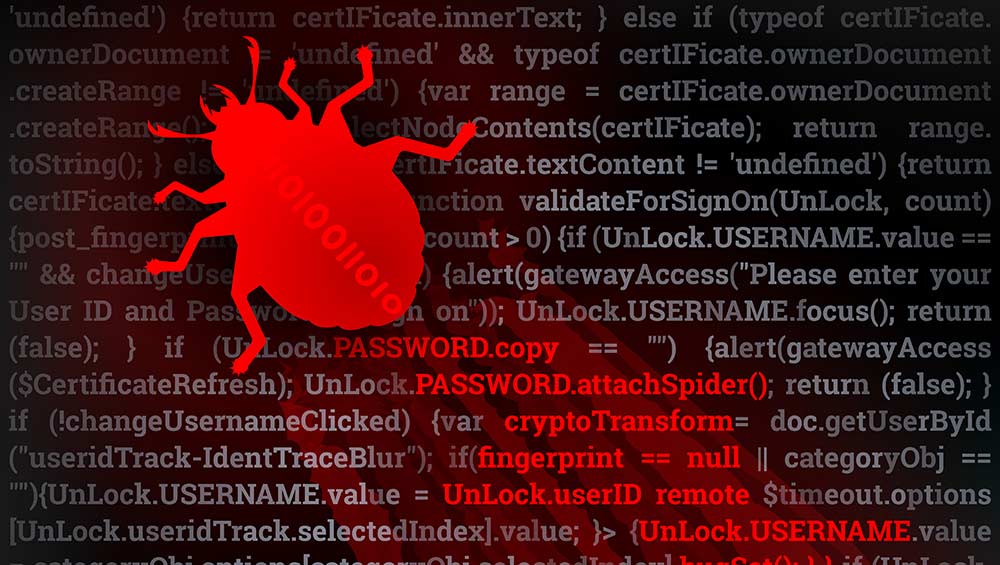More than 60,000 websites hit by 'trojan cocktail'
A researcher has said the attack is similar to one used to steal credit and debit card numbers in a massive US breach last year.

A trojan cocktail' has hit legitimate websites in the UK and US, carrying a dangerous mix of backdoors, password stealers and downloader programs.
As of Friday, 55,000 websites had been affected, but this has now increased to 64,700, according to ScanSafe, the company that initially discovered the threat. This is around an eight per cent increase in just a few days.
The websites were affected as a result of an SQL injection attack. This is a way of tricking the database behind a website into responding to a normal search query as if it was a command to take some kind of action.
By tricking the database, the SQL injection attack tells the website to insert a malicious iframe onto its pages.
Once the legitimate website has been compromised, an intermediary site that hosts different exploits silently loads malicious content into the website while a user is browsing, looking for a vulnerability that it can take advantage of.
Once an exploit has been found, the trojan cocktail can be installed on a user's machine. Mac users can feel safe, as the cocktail is only targeting Windows PCs.
"The malware that is being downloaded consists of a backdoor, a trojan downloader and a keylogger," said senior ScanSafe researcher Mary Landesman speaking to IT PRO. "It all happens at the same time."
Get the ITPro daily newsletter
Sign up today and you will receive a free copy of our Future Focus 2025 report - the leading guidance on AI, cybersecurity and other IT challenges as per 700+ senior executives
"This is the type of malware in terms of its inner workings very similar to what they had at Heartland Payment Systems," she added.
This was an incident in the US where the payments processor was the victim of a massive security breach, leaving customer transaction data and card numbers exposed.
Landesman said that there were a large number of UK sites that were impacted, which can be seen with a Google search on the iframe script tag. (It was advised that users should not click through unless they knew what they were doing).
Scrolling through the list, one of British websites affected included one belonging to the Royal College of General Practitioners.
Landesman said that in this particular attack, the attackers purposely avoided targeting government websites to avoid the type of the attention it could bring.
-
 Should AI PCs be part of your next hardware refresh?
Should AI PCs be part of your next hardware refresh?AI PCs are fast becoming a business staple and a surefire way to future-proof your business
By Bobby Hellard
-
 Westcon-Comstor and Vectra AI launch brace of new channel initiatives
Westcon-Comstor and Vectra AI launch brace of new channel initiativesNews Westcon-Comstor and Vectra AI have announced the launch of two new channel growth initiatives focused on the managed security service provider (MSSP) space and AWS Marketplace.
By Daniel Todd
-
 CronRat Magecart malware uses 31st February date to remain undetected
CronRat Magecart malware uses 31st February date to remain undetectedNews The malware allows for server-side payment skimming that bypasses browser security
By Rene Millman
-
 Mekotio trojan continues to spread despite its operators’ arrests
Mekotio trojan continues to spread despite its operators’ arrestsNews Hackers have used it in 100 more attacks since arrests
By Rene Millman
-
 “Trojan Source” hides flaws in source code from humans
“Trojan Source” hides flaws in source code from humansNews Organizations urged to take action to combat the new threat that could result in SolarWinds-style attacks
By Rene Millman
-
 What is Emotet?
What is Emotet?In-depth A deep dive into one of the most infamous and prolific strains of malware
By Praharsha Anand
-
 Fake AnyDesk Google ads deliver malware
Fake AnyDesk Google ads deliver malwareNews Malware pushed through Google search results
By Rene Millman
-
 Hackers use open source Microsoft dev platform to deliver trojans
Hackers use open source Microsoft dev platform to deliver trojansNews Microsoft's Build Engine is being used to deploy Remcos password-stealing malware
By Rene Millman
-
 Android users told to be on high alert after Cerberus banking Trojan leaks to the dark web
Android users told to be on high alert after Cerberus banking Trojan leaks to the dark webNews The source code for the authenticator-breaking malware is available for free on underground forums
By Sabina Weston
-
 Qbot malware surges into the top-ten most common business threats
Qbot malware surges into the top-ten most common business threatsNews An evolved form of the banking Trojan was distributed by number one-ranking Emotet in a campaign that hit 5% of businesses globally
By Keumars Afifi-Sabet